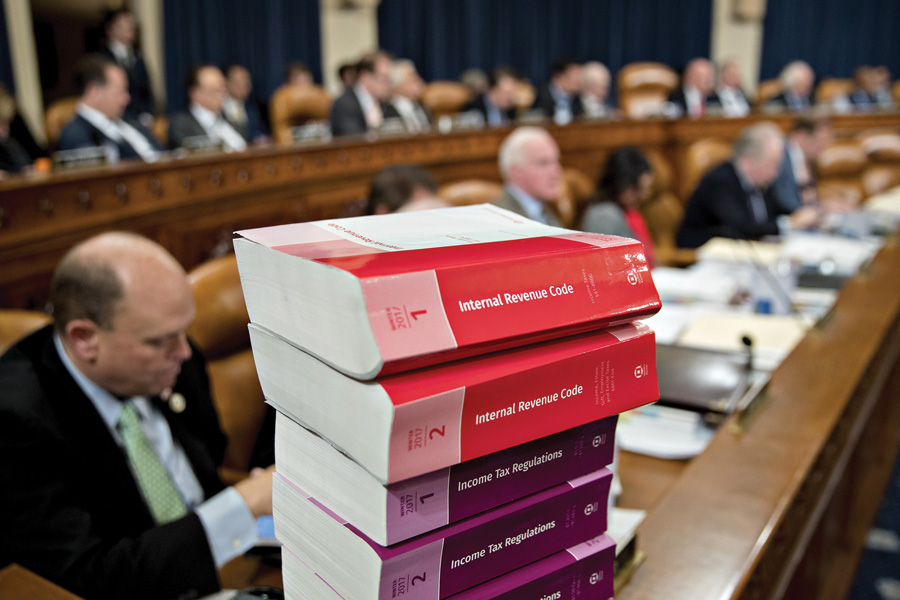

A bill that would impose a tax on high-volume financial transactions in New Jersey will be the subject of a hearing in the state Assembly next week.
The meeting Monday of the Financial Institutions and Insurance Committee likely will include a discussion of amendments that would lower the proposed tax rate and sunset the levy after two years, said Kevin McArdle, communications director for the General Assembly Democratic majority. The revisions would not be voted at Monday’s hearing.
The bill would impose a tax of $0.0025 per transaction on any person or entity that processes more than 10,000 transactions through electronic exchanges located in the state. The tax would apply to the purchase or sale of financial securities, including futures, options and swaps contracts as well as derivatives and stocks. An amendment likely to be floated on Monday would reduce the tax to $0.0001.
The tax has generated strong resistance from the New York Stock Exchange, Nasdaq and TD Ameritrade, which have threatened to move their trading operations out of the state.
The sponsor of the bill, Assemblyman John F. McKeon, D-Essex, is not backing down. He said the tax will help bolster New Jersey’s budget.
“It is disappointing that as opposed to being part of the solution, the NYSE is threatening to take its ball and go home,” McKeon said in an emailed statement Thursday. “We are ready and willing to work with stakeholders to hear their concerns, but we must come from a place of fairness. We need to explore all options that could help our state during this fiscal crisis. At the end of the day, New Jersey families are our priority.”
It’s not clear when the bill will be amended or voted on in the Assembly. The next voting day for the legislature is Oct. 29, but the measure may not be ready for action by then, McArdle said.
An identical bill has been introduced in the Senate by Senate President Stephen M. Sweeney, D-W. Deptford. A Senate Democratic aide said there is no Senate timeline for the bill.
A financial transactions tax has been promoted by Democratic lawmakers in Congress and has the support of the Democratic presidential candidate, former Vice President Joe Biden.
Financial services lobbying groups, such as the Securities Industry and Financial Markets Association, oppose a financial transactions tax, asserting that it is the equivalent of a sales tax on investors.
Brian Graff, president of the American Retirement Association, cautions that the cost of the tax would be passed on to retirement accounts. He said more than two-thirds of participants in 401(k) plans earn less than $100,000 annually.
“It’s going to cover retirement savers, and that’s a lot of middle- and low-income people in New Jersey,” Graff said. “The folks in New Jersey recognize that doing this at the state level is complicated.”
Zach Gladney, a partner at the law firm Alston & Bird, doubts a transaction tax will be approved in New Jersey because the stock exchanges could easily relocate to other states, such as Connecticut.
“That service industry in New Jersey will no longer exist if the tax is passed,” Gladney said. “It’s just too portable of a business. It’s going to be long term more detrimental to New Jersey than helpful.”
Financial industry lobbyists are girding for a fight in Congress next year, depending on the outcome of the election. Democratic majorities on Capitol Hill likely would try to advance a trading levy.
“A financial transactions tax is something we’re going to be closely monitoring as a potential threat,” Graff said.

By listening for what truly matters and where clients want to make a difference, advisors can avoid politics and help build more personal strategies.

JPMorgan and RBC have also welcomed ex-UBS advisors in Texas, while Steward Partners and SpirePoint make new additions in the Sun Belt.

Counsel representing Lisa Cook argued the president's pattern of publicly blasting the Fed calls the foundation for her firing into question.

The two firms violated the Advisers Act and Reg BI by making misleading statements and failing to disclose conflicts to retail and retirement plan investors, according to the regulator.

Elsewhere, two breakaway teams from Morgan Stanley and Merrill unite to form a $2 billion RIA, while a Texas-based independent merges with a Bay Area advisory practice.
Orion's Tom Wilson on delivering coordinated, high-touch service in a world where returns alone no longer set you apart.
Barely a decade old, registered index-linked annuities have quickly surged in popularity, thanks to their unique blend of protection and growth potential—an appealing option for investors looking to chart a steadier course through today's choppy market waters, says Myles Lambert, Brighthouse Financial.
